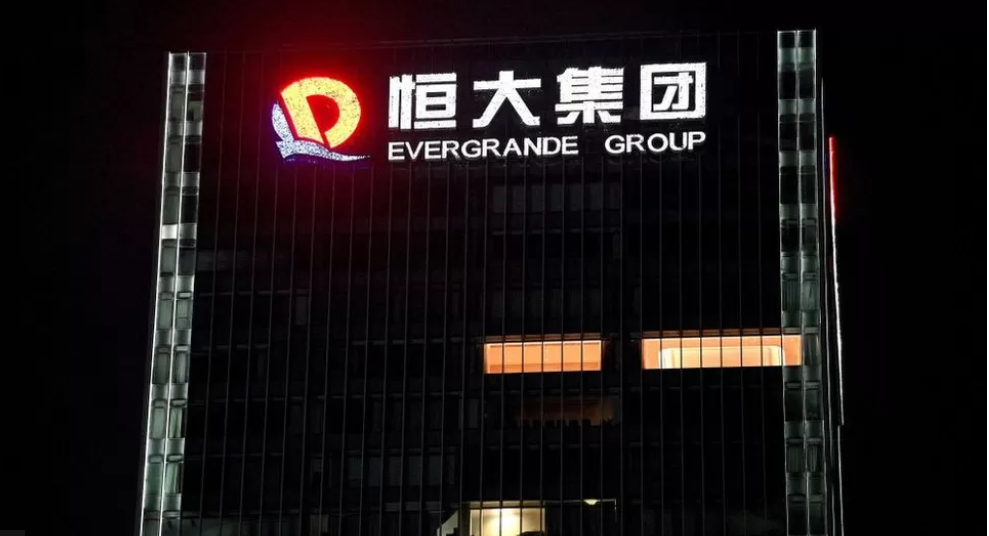(BBC News) Chinese property developer Evergrande owes more than $325 billion.
For two years, the company has been lurching from crisis to crisis, repeatedly failing to make payments on its multi-billion-dollar loans.
Its billionaire chairman is under police surveillance, its shares are practically worthless, and more than one million people in China are waiting for their homes to be completed. On Monday, a court in Hong Kong could open a new chapter in the crisis by ordering the liquidation of some Evergrande assets to pay back frustrated foreign investors.
Evergrande has become the poster child of China’s flailing real estate sector. Its name, along with other major developers such as Country Garden, has become associated with unsustainable debt and impending financial disaster. Yet, Evergrande clings to survival.
In most western countries, a failing privately owned business such as Evergrande would either be liquidated or, in extreme cases, bailed out by the government. But things are done differently in China.
The world’s second-largest economy is neither capitalist nor communist. It is unique, which makes it hard to predict Evergrande’s fate.
But for now, Beijing has eased pressure on the firm in ways other countries cannot.
“It is alive only because the government hasn’t let it die,” says Leland Miller, chief executive of China Beige Book, an analytical platform that tracks the Chinese marketplace.
China is not a free market. When a problem arises, Miller explains, the state can simply move tidal waves of money to patch it up.
The majority of the money Evergrande owes is to creditors in China, including ordinary homeowners, suppliers and banks. And the government’s control over them is key to explaining the company’s zombie-like state.
“The banking system in China is still almost exclusively state-run,” says Dexter Roberts, senior fellow at the Atlantic Council. “So if Beijing tells those banks to find a way to roll over the debt, then they’re going to do that. Ultimately, they answer to the state, and they are well aware of that.”
Miller agrees: “The Chinese state can order lenders to lend, suppliers to supply, borrowers to borrow. Evergrande is neither dead nor alive, but in this system it doesn’t really matter.”
Not all of Evergrande’s creditors are Chinese. A small group of frustrated lenders outside of China have scheduled a court hearing in Hong Kong on October 30. A judge could order a liquidation of company assets to be distributed to these foreign creditors.
However, this would be unprecedented in scale and complexity. And it would almost certainly need the approval of Chinese authorities.
So what happens to Evergrande? Some analysts say that China’s leadership is yet to decide.
“A lot of the Chinese system is still modelled on the Soviet Union, and there were no bankruptcies in the Soviet Union,” says Logan Wright, director of China Market Research at Rhodium Group.
“You have to remember that western capitalism has had a long time to establish a process for failed companies and how you manage their debts. In China, there isn’t the same kind of template.”
The Chinese government could let Evergrande collapse. But, according to Roberts, Beijing would then have to clean up the mess, which would be a huge political headache.
The knock-on effects for local governments – which rely on land sales – suppliers and banks would be “potentially catastrophic”, he added.
Other analysts argue that Evergrande’s collapse, if it were to happen, could hurt the future of the Communist Party itself.
“Social stability is at stake,” says Shitong Qiao, an expert in Chinese property law at Duke University in the U.S.
“A collapse would not just leave many Chinese banks with bad debt, it would also leave hundreds of thousands of Chinese homebuyers without an apartment that they have paid for.”
On more than one occasion, there have been chaotic scenes at Evergrande’s headquarters in Shenzhen, when protesters scolded executives and home buyers demanded refunds on their purchases. Last year, many of them joined a mortgage strike until their homes were completed.
A collapse could shatter confidence in the housing market, plunging prices further. That would leave people noticeably poorer in a country where they invest their life-savings in new homes. And it would be a blow to an already sluggish economy – the property sector accounts for a quarter of it.
All of this could lead to more public anger and even instability. And that is perhaps the biggest threat to the Party, whose grip on power has long been bolstered by China’s prosperity.


